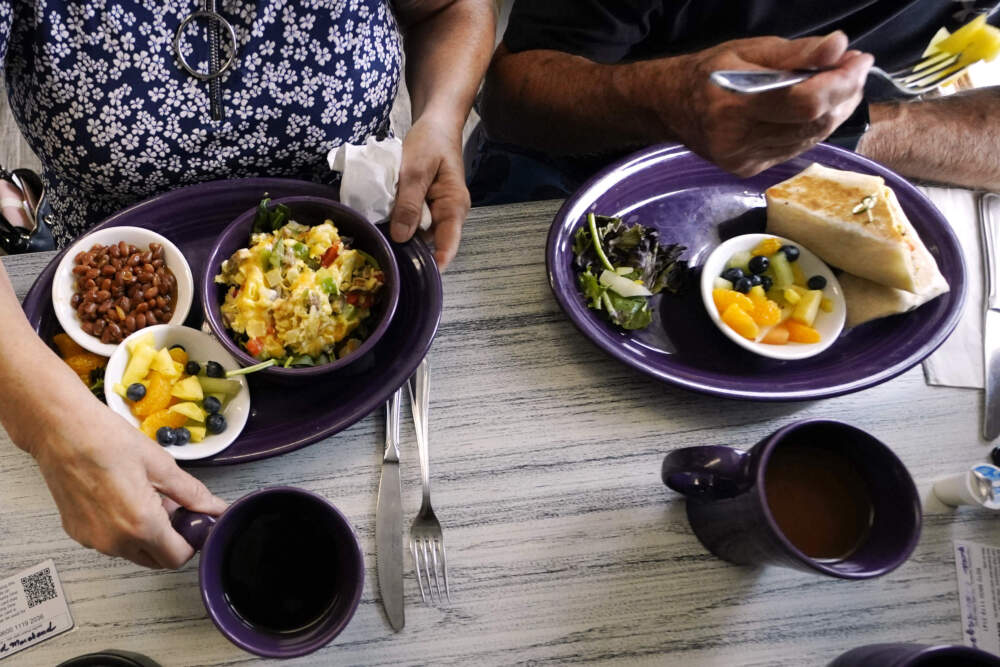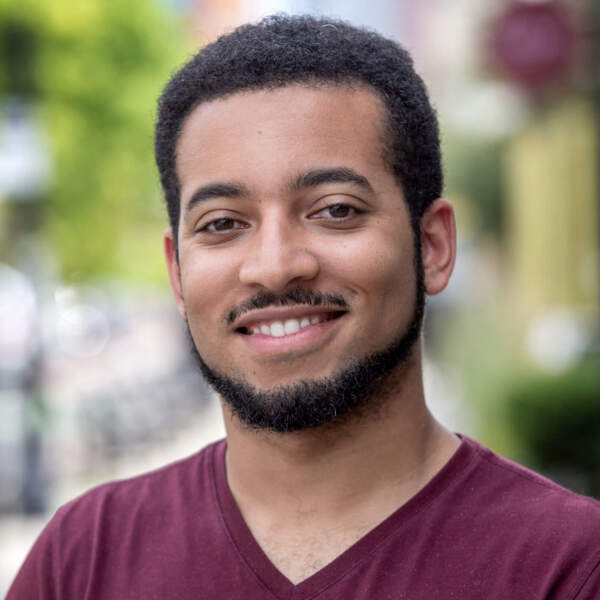Advertisement
New Tufts University study aims to figure out exactly how food affects the body
Resume
A new study at Tufts University asks a simple yet profound question: how does food affect your body?
To put it to the test, four people were kept in a building in Boston for two weeks at a time. If they went out, they were followed. They were given four meals a day at precise times and had to eat every bite. Meanwhile, monitors attached to their bodies would track their bodies' responses.
Sarah Booth, the director of the Human Nutrition Research Center on Aging at Tufts University, joins us to discuss the study along with participants Lori Mattheiss and Tim Carter.
Interview Highlights
On their overall experience:
Carter: "We were there two weeks at a time for three different periods."
Mattheiss: "We did go out a few times, but we were [tailed], they were right on us... I mean, we could go wherever we wanted, but we could not eat or drink anything outside the building."
"It was like living in a hotel, so that was great. We had a beautiful view. So it was like a nice hotel with not so nice, well, the furniture was a little to be desired. But it was great because we didn't have to grocery shop for two weeks, no grocery shopping, no cooking, no doing dishes."
On the study:
Booth: "I just want to say hi to and commend [Lori and Tim] for their enthusiasm as study participants — they participated in a study called Nutrition for Precision Health. It is a national study of which we have the privilege of being one of the clinical centers. And in essence, we are asking, 'Why do each of us respond differently to the food we eat?'"
"We have an understood for decades that when you give the same food to two different people, they're going to respond differently. Most of our nutrition guidance is based on sort of the average of those observations. Now we have the technology and we have the scientific knowledge to really dive deep and find out what are the factors that drive our individual variability and how we respond to a diet. And ultimately these data will allow for more precise dietary guidance for individuals to promote health."
On what Mattheiss and Carter were fed and why:
Carter: "The thing that really sticks out in my mind from that first period was the processed foods that I haven't eaten since I was a teenager. This is the Lifesaver gummies. They were giving us hot dogs and Frito... and Yodels, which, I think they call them Swiss rolls. And Sprite to drink. So this is stuff I haven't eaten for decades, literally."
Booth: "This study, which is, as I mentioned a National Institute of Health funded national study, is trying to look at common diet patterns in the U. S. and our response to those diet patterns. So the three diets that they were discussing vary in... I think one is grouped around high fat. One is more high protein. And one has a lot of fruits and vegetables, beans and nuts. And I just want to emphasize that we're not choosing diets that we're going to then conclude one is better than the other. Each diet has very distinct components, so we can better understand how individuals respond to those individual components."
"The end game is to understand the various factors that contribute to how we respond to specific dietary patterns so that we can develop algorithms, predictive equations that ultimately would allow your primary care physician, for example, to give guidance on what is the best diet for you."
On why Mattheiss and Carter agreed to the study:
Mattheiss: "Well, because I'm a science person. I have a biology degree and I've always worked in biotech and pharma — and doing this was kind of a leap for us, but we dove in."
Carter: "The reason I did it is that I'm generally a very curious person and the idea of what the study was looking for intrigued me.
And also the fact that because, you know, neither Lori and I are research scientists I wanted to be able to contribute to the future in some way. So in this way, I think in some small way, I was able to do that."
On how this study tackles the difficulty of sequestering participants:
Booth: "I do want to clarify... there are three modules that people can participate in. Everybody has to participate in Module 1, which is being in your free living environment, doing your usual activity. And there are a number of questions that will be answered in that module. So that will allow people who work, who have different lifestyles, [to still] be able to participate."
"From that Module 1 of which they are targeting 10, 000 people — and my understanding is with their across the country, at least 1500 people have already completed that module — then people can opt into either Module 2 or Module 3."
"Module 3 is the most extreme, which Tim and Lori participated in, because you live in house. It's very controlled. But there's a Module 2, where you do the same protocol that Lori and Tim did, except you would not live in our center, you would do it free living, and you would not be escorted every time you walked out the building. So there are a lot of options for people to participate this in accordance to their lifestyle."
On what is done with the data:
Booth: "The data, once it is all collected, will be used by an artificial intelligence center that is part of this Nutrition for Precision Health. They will take the data and use machine learning and artificial intelligence to make predictive equations based on all the data points that are being collected. I just want you to imagine having glasses recording your chewing movements and everything you do in a meal. Those are a lot of data points that we can only now analyze with machine learning and artificial intelligence."
This segment aired on April 19, 2024.

